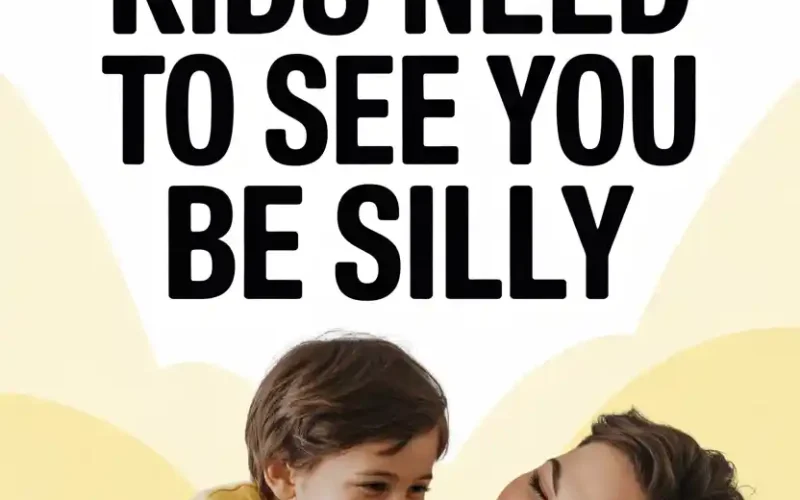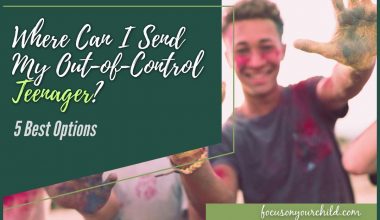You probably don’t need scientific proof that children love silly parents—just catch a glimpse of your child’s face when you cross your eyes or channel your inner T-rex at the breakfast table.
Still, the daily grind can make it hard for parents to loosen up, especially with work calls, school runs, and a kitchen that seems to regenerate dirty dishes overnight. Yet, a little silliness isn’t just a bonus; it’s vital.
Let’s find out why a touch of goofiness can work magic for both you and your child.
Why Silliness Is More Than Just Fun
It’s easy to dismiss silliness as frivolous, a luxury for those with too much free time and not enough laundry. But here’s the twist: being silly isn’t just about giggles.
There’s a solid foundation of research showing that playfulness in parents leads to stronger emotional bonds, improved resilience, and even enhanced brain development in children.
Dr. Stuart Brown, founder of the National Institute for Play, has spent decades studying what makes play essential for healthy development.
His work underlines that shared laughter and playful exchanges build trust, creativity, and emotional intelligence. So, when you swap your ‘mum’ or ‘dad’ hat for a pirate hat, you’re giving your kids more than just a chuckle.
The Bonding Power of Shared Laughter
Ever tried to tickle your child without cracking a smile? Impossible.
Shared laughter is the glue that holds families together, especially when life is stubbornly ordinary (or, if we’re honest, slightly chaotic).
Silly moments create what psychologists call “micro-connections”—fleeting but powerful bursts of closeness that stack up over time.
According to Harvard research on family resilience, these moments don’t just boost your child’s mood. They build emotional security, making your child feel safe to explore the world (and, apparently, the biscuit tin).
Modelling Emotional Flexibility
Stiff upper lips have their place—school assemblies, toddler birthday parties, the dentist’s chair. But when you allow yourself to be ridiculous, you model emotional flexibility.
This teaches your child that it’s okay to be silly, to make mistakes, to recover from embarrassment, and to not take themselves too seriously.
Child psychologist Dr. Laura Markham notes that “children who see adults play and joke learn how to cope with setbacks and laugh at themselves.”
In a world that can take itself all too seriously, this is an essential survival skill.
Silliness as an Antidote to Stress
Nothing punctures a stressful situation quite like a well-timed dad joke or an impromptu dance-off in the lounge. Children are exquisitely attuned to parental stress, soaking it up like little emotional sponges.
Pulling a funny face or narrating bathtime as if you’re David Attenborough can reset the tone for everyone.
A 2019 study from the University of Washington found that families who laugh together show lower cortisol levels and resolve conflicts more easily.
Translation: silly parents help keep homes happier and calmer—even when the peas hit the fan.
Boosting Creativity and Problem-Solving
Ever built a blanket fort with your child and declared it a spaceship? That’s not just a fun Tuesday. It’s engineering, storytelling, and creative thinking all rolled into one.
Kids learn by watching, and when they see you improvise and joke, they pick up cues about creativity, risk-taking, and bouncing back from failure.
Dr. Alison Gopnik, a leading developmental psychologist, writes in The Gardener and the Carpenter, that “open-ended, playful engagement” is the cornerstone of flexible thinking.
Silliness gives children permission to experiment without fear of getting it wrong.
Breaking Through Rough Moments
Every parent has faced an epic standoff—over bathwater temperature, sock seams, or the existential injustice of broccoli. While boundaries are important, humour is your secret weapon.
Sometimes, a goofy voice or a fake tantrum (“I don’t wanna brush MY teeth either!”) can short-circuit a power struggle and bring everyone back to neutral.
Clinical psychologist Lawrence Cohen, author of Playful Parenting, encourages parents to “meet children where they are,” using playful connection to diffuse tension.
This doesn’t mean abandoning limits; it just means sprinkling a little lightness on the tough stuff.
Raising Resilient Kids
Everyone wants their child to handle life’s bumps with grace—and, if possible, a bit of cheek. When you poke fun at yourself or turn a mishap into a game, you show your children that mistakes are nothing to fear.
This kind of resilience is built, not born, and it starts with how parents react to setbacks, both big and small.
A child who sees you laugh off a burnt dinner or sing through a rainstorm learns that life’s unpredictability isn’t a disaster—it’s just part of the story.
Fostering Authenticity and Acceptance
Kids crave authenticity. They can sniff out “parent mode” from a mile away. When you drop the act and get silly, you show your child that it’s okay to be yourself—quirks, flaws, and all.
This creates a powerful sense of acceptance, both for themselves and for you.
Research published in Child Development points out that children who feel safe being themselves at home develop higher self-esteem and stronger social skills. Your willingness to be goofy gives them permission to do the same.
Silliness Is Self-Care
This one’s for you. Parenting is rewarding, but it’s also relentless. Giving yourself permission to be ridiculous can be surprisingly restorative.
Laughter releases endorphins, relieves tension, and reminds you that you’re more than just the family taxi driver or snack distributor.
A few minutes of impromptu dancing, funny voices, or sock-puppet theatre might not solve your to-do list, but it can make it feel a lot lighter.
Making Silliness a Habit
You don’t need an improv degree or a clown nose (unless that’s your thing). Silliness is about small, everyday moments:
- Pull a silly face when you hand over the car keys.
- Narrate the school run like a wildlife documentary.
- Make up a song about brushing teeth, preferably off-key.
- Invent a secret handshake (bonus points for dramatic flourishes).
- Pretend to forget basic facts (“Wait, kids don’t wear hats on their feet?”).
Small gestures build up over time, creating a home where joy isn’t an occasional visitor—it’s a regular guest.
When It’s Hard to Be Silly
Plenty of parents feel nervous about looking foolish, especially if they didn’t grow up in a home where adults let their hair down.
Here’s the good news: your kids aren’t looking for stand-up comedy. They want connection.
Start small. Try a funny voice at bedtime or share a silly memory from your own childhood. If you’re feeling especially bold, try a game of charades or “guess that animal sound” at the dinner table.
Children are wonderfully forgiving audiences. The only real mistake is not joining in at all.
What About Teenagers?
Teenagers, those mysterious creatures who seem allergic to parental enthusiasm, need silliness just as much—though they may never admit it. The trick is to adapt to their sense of humour.
Share a silly meme, invent a ridiculous family catchphrase, or challenge them to the world’s worst dance-off.
A shared laugh can cut through even the most stubborn sulks. Plus, you get the added bonus of embarrassing them (which, let’s be honest, is one of the secret joys of parenting teens).
Silliness for Busy Parents
If you’re reading this while stirring pasta and tripping over Lego, know this: silliness doesn’t require a chunk of your schedule.
It’s the facial expression you pull behind your kid’s back when they’re whining, the wobbly voice you use to read the same picture book for the hundredth time, the “who can make the silliest sandwich face” contest as you pack lunches on autopilot.
Remember: you don’t need to add something new to your plate—just sprinkle in a bit of fun with what’s already there.
Give Yourself Permission
Some days, the idea of being silly feels as out of reach as a full night’s sleep. That’s normal. On the hard days, even a wink or a goofy grin is enough.
Your children don’t need perfection—they just need to know that you can laugh with them, even when the world is a little wobbly.
A home with laughter is a home where everyone can breathe. And isn’t that what we’re all after?
Why Silliness Sticks
Long after your children outgrow the blanket forts and knock-knock jokes, they’ll remember how it felt to laugh with you.
Silliness isn’t a distraction from the serious work of parenting—it’s the secret ingredient.
When you show your child that grown-ups can be daft, you’re teaching them something important: that joy doesn’t have to wait until the chores are finished, that mistakes are part of the fun, and that life, for all its messiness, is meant to be shared.
Go ahead—make a funny face. The dishes can wait.




